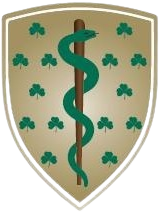Hypothyroidism vs. Hyperthyroidism: Signs, Causes, and Treatment Options
The thyroid gland, a small butterfly-shaped organ in your neck, plays a crucial role in regulating metabolism, energy, and overall health. When it malfunctions, it can lead to hypothyroidism (underactive thyroid) or hyperthyroidism (overactive thyroid)—two conditions with very different symptoms and treatments.
Because thyroid disorders often develop gradually, many people dismiss their symptoms as stress, aging, or general fatigue. Left untreated, however, they can lead to serious health complications.
In this article, we’ll explore:
✔ Key differences between hypothyroidism and hyperthyroidism
✔ Common symptoms and causes
✔ How thyroid disorders are diagnosed
✔ Effective treatment options
✔ When to see a doctor
Hypothyroidism vs. Hyperthyroidism: What’s the Difference?
Hypothyroidism (Underactive Thyroid)
What happens? The thyroid doesn’t produce enough hormones, slowing down bodily functions.
Common symptoms:
Fatigue and sluggishness
Unexplained weight gain
Cold intolerance
Dry skin and hair loss
Depression and brain fog
Constipation
Muscle weakness
Hyperthyroidism (Overactive Thyroid)
What happens? The thyroid produces too much hormone, speeding up metabolism.
Common symptoms:
Anxiety, irritability, and restlessness
Rapid weight loss (despite normal eating)
Heat intolerance and excessive sweating
Fast or irregular heartbeat (palpitations)
Tremors in hands
Frequent bowel movements
Difficulty sleeping
Key Insight: While hypothyroidism slows the body down, hyperthyroidism speeds it up—leading to opposite symptoms.
What Causes Thyroid Disorders?
Causes of Hypothyroidism
Hashimoto’s Thyroiditis (most common) – An autoimmune disease where the body attacks the thyroid.
Iodine Deficiency – Rare in developed countries due to iodized salt but still a global issue.
Thyroid Surgery or Radiation – Removal or damage to the thyroid gland.
Certain Medications (e.g., lithium, amiodarone).
Pituitary Gland Disorders – If the pituitary doesn’t signal the thyroid properly.
Causes of Hyperthyroidism
Graves’ Disease (most common) – An autoimmune disorder causing overproduction of thyroid hormones.
Toxic Nodules or Goiter – Lumps in the thyroid that produce excess hormones.
Thyroiditis – Inflammation causing temporary hormone leakage.
Excess Iodine Intake – From supplements or medications.
How Are Thyroid Disorders Diagnosed?
If you suspect a thyroid issue, your doctor may order:
1. Blood Tests
TSH (Thyroid-Stimulating Hormone) – High TSH = hypothyroidism; Low TSH = hyperthyroidism.
Free T4 & T3 – Measures active thyroid hormones.
Antibody Tests (for Hashimoto’s or Graves’ disease).
2. Imaging Tests
Ultrasound – Checks for nodules or inflammation.
Radioactive Iodine Uptake (RAIU) Scan – Assesses thyroid function (for hyperthyroidism).
Treatment Options for Thyroid Disorders
Hypothyroidism Treatment
✔ Levothyroxine (Synthroid, Levoxyl) – Synthetic thyroid hormone replacement (taken daily).
✔ Lifestyle Adjustments – Balanced diet (selenium, zinc), regular exercise, stress management.
✔ Monitor TSH Levels – Dosage may need adjustments over time.
Hyperthyroidism Treatment
✔ Antithyroid Medications (Methimazole, PTU) – Blocks hormone production.
✔ Radioactive Iodine Therapy – Destroys overactive thyroid cells.
✔ Beta-Blockers – Manages rapid heart rate and tremors.
✔ Surgery (Thyroidectomy) – Partial or full removal in severe cases.
Note: After thyroid removal or radioactive iodine treatment, patients often develop hypothyroidism and need lifelong hormone replacement.
When to See a Doctor
Consult a healthcare provider if you experience:
Persistent fatigue or unexplained weight changes
Rapid heartbeat, anxiety, or tremors
Swelling in the neck (goiter)
Family history of thyroid disease
Symptoms despite treatment
Long-Term Risks of Untreated Thyroid Disorders:
Hypothyroidism: Heart disease, high cholesterol, infertility, depression.
Hyperthyroidism: Osteoporosis, heart problems (atrial fibrillation), thyroid storm (life-threatening complication).
Final Thoughts
Thyroid disorders are common but often overlooked due to their vague symptoms. Recognizing the differences between hypothyroidism (slow metabolism) and hyperthyroidism (overactive metabolism) is crucial for proper diagnosis and treatment.
Key Takeaways:
✔ Hypothyroidism = fatigue, weight gain, cold intolerance.
✔ Hyperthyroidism = anxiety, weight loss, rapid heartbeat.
✔ Diagnosis involves blood tests (TSH, T4, T3) and imaging.
✔ Treatment ranges from medication to surgery, depending on severity.
If you suspect a thyroid imbalance, don’t ignore the signs—early intervention can restore balance and improve your quality of life.





